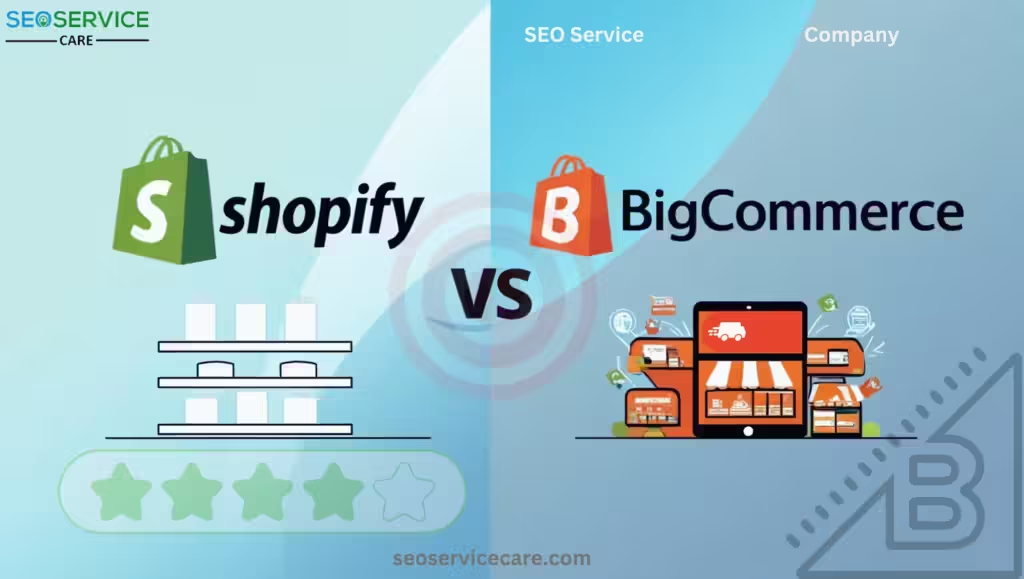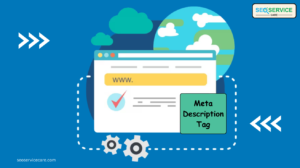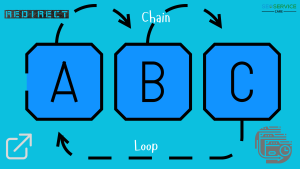Choosing the right eCommerce platform can be a big decision for small businesses. Shopify and BigCommerce are two top contenders that offer powerful tools to help you grow your online store. But which one is the best for your business? In this guide, we’ll break down Shopify vs BigCommerce, covering ease of use, pricing, features, customer support, and more to help you make an informed decision.
Overview of Shopify vs BigCommerce
Both Shopify and BigCommerce are designed to help businesses create and run online stores with ease. They allow you to showcase your products, manage orders, and process payments seamlessly.
- Shopify is known for its simplicity, making it a favorite for beginners. It’s also known for its beautiful templates and strong support. Many small business owners choose Shopify because it is simple to use.
- BigCommerce, on the other hand, is packed with advanced built-in features, making it ideal for those looking for scalability.
But let’s dive into each platform’s specifics to understand which one truly stands out.
Ease of Use
When you’re starting a new business, you want a platform that’s easy to use. Let’s see how Shopify vs BigCommerce compare in this area.
Shopify: User-Friendly Interface
Shopify is well-known for its easy-to-use interface. With a simple setup and easy drag-and-drop editor, anyone can start building a store—even without technical experience. quickly. Everything is clearly laid out, so adding products, customizing your store, and managing orders is a breeze.
BigCommerce: A Slightly Steeper Learning Curve
BigCommerce also offers a range of customization tools but has a steeper learning curve. While its dashboard is clear, it has more built-in features, which might feel overwhelming at first. However, once you get the hang of it, BigCommerce’s tools can give you great control over your store.
Winner: Shopify takes the lead in ease of use, especially for beginners.
Pricing: Finding the Right Fit for Your Budget
Choosing the right pricing plan is important for your business’s growth and sustainability. Below is a comparison of the pricing plans for Shopify vs BigCommerce:
| Feature | Shopify | BigCommerce |
|---|---|---|
| Basic Plan | $39/month | $39/month |
| Shopify Plan | $105/month | $105/month |
| Advanced Plan | $399/month | $399/month |
| Transaction Fees | Yes, unless using Shopify Payments (up to 2% for Basic) | No transaction fees on any plan |
| Free Trial | 14-day free trial | 15-day free trial |
| Additional Features | App Store with 6,000+ apps | Built-in features, no reliance on third-party apps |
| Best for | Beginners and small businesses | Growing businesses with high sales volume |
Winner for Small Businesses
For small businesses that are just starting, Shopify is usually the best choice. It has a user-friendly interface and is easy to set up. The Basic Plan is affordable. It gives you the basic tools to start a new online store. You can use Shopify Payments to avoid transaction fees. This option can help you save money as your business grows.
Winner for All Types of Businesses
For all types of businesses, BigCommerce emerges as the overall winner. It has no transaction fees and includes advanced features. This makes it a good choice for businesses with high sales or complex needs. BigCommerce can support growth without extra costs. This makes it a good choice for both small startups and large businesses.
Features: What Each Platform Offers
Let’s compare the key features of Shopify vs BigCommerce.
Shopify Features
Shopify is known for its flexibility and wide range of features:
- Beautiful Templates: Choose from a variety of mobile-friendly, customizable themes.
- App Store: Over 6,000 apps allow you to add more functionality to your store, from marketing tools to customer service.
- SEO Tools: Shopify has tools for optimizing product pages, which can help improve your store’s visibility.
- Mobile Optimization: Shopify’s themes and checkout are mobile-friendly, and essential for customers shopping on phones.
BigCommerce Features
BigCommerce stands out with its built-in features, meaning you’ll rely less on third-party apps:
- No Transaction Fees: With no transaction fees, BigCommerce is a budget-friendly choice.
- Multi-Channel Selling: Sync your products with Amazon, eBay, and social platforms easily.
- Detailed Reporting: BigCommerce provides advanced analytics for deeper insights into your store’s performance.
Winner: BigCommerce works well for businesses that want strong built-in features. It doesn’t rely much on extra apps.
Payment Gateways: Accepting Payments Made Easy
Accepting payments is an important part of any online store. Let’s look at the payment options available on both platforms.
Shopify Payment Gateways
Shopify works with over 100 payment gateways. It also offers its own option, Shopify Payments, which removes transaction fees. It also integrates with popular options like PayPal, Stripe, and Authorize.Net.
BigCommerce Payment Gateways
It offers more than 65 payment gateway options, with no additional transaction fees on any gateway. BigCommerce works with PayPal, using Braintree. This setup offers special rates, making it more affordable.
Winner: BigCommerce’s no-transaction-fee policy gives it an edge in payment options.
Customer Support: Getting Help When You Need It
Having reliable customer support can make a huge difference. Let’s see how Shopify vs BigCommerce stack up in this area.
Shopify Support
They offer 24/7 support via chat, phone, and email, along with a large community forum. Shopify Academy also provides tutorials and webinars to help users get up to speed.
BigCommerce Support
BigCommerce provides 24/7 support as well, with a comprehensive help center and community forum. Their support is known for being responsive, especially for businesses on higher-tier plans.
Winner: It’s a tie. Both platforms provide strong customer support options, ensuring you have help whenever you need it.
SEO Features: Helping Your Store Get Found
Both platforms offer SEO features, but BigCommerce has a slight edge with its additional advanced options.
Shopify SEO Features
Shopify offers basic SEO tools, like custom title tags, meta descriptions, and alt text for images.
BigCommerce SEO Features
BigCommerce takes things further. It offers custom URLs and faster page load times. Its structured data setup can also boost search engine rankings.
Winner: BigCommerce is the better option if SEO is a priority for your store.
Mobile Responsiveness: Shopping on the Go
With most customers shopping on mobile, having a responsive design is essential.
Shopify Mobile Responsiveness
Shopify’s themes are mobile-optimized, ensuring your site looks great on any device.
BigCommerce Mobile Responsiveness
BigCommerce also provides mobile-friendly themes. However, it additionally offers Accelerated Mobile Pages (AMP) for faster loading, which can improve SEO.
Winner: BigCommerce takes the lead with AMP support for faster mobile performance.
App Integrations: Adding Extra Functionality
Both platforms offer app stores that allow you to enhance your store’s capabilities.
Shopify App Store
Shopify has a large app store with over 6,000 apps. These apps let you customize your store. You can add tools for marketing, inventory management, and more.
BigCommerce App Store
BigCommerce’s app store is smaller than Shopify’s. However, it has strong apps in key categories. This makes it easy to add important functions.
Winner: Shopify wins in this category due to its larger app selection.
Scalability: Growing with Your Business
As your business grows, you want a platform that can grow with you. Here’s how Shopify vs BigCommerce compare for scalability.
Shopify Scalability
Shopify offers different plans and app options. This makes it easy to grow your business as it gets bigger. The platform has resources and tools that work well for both small and large businesses.
BigCommerce Scalability
BigCommerce is highly scalable, with built-in features designed to support growing businesses. It’s particularly suited for large inventories and high-volume sales.
Winner: BigCommerce may be more affordable for larger businesses. Shopify is better for small to mid-sized companies that want to grow.
Design Flexibility: Customizing Your Store
Your store’s design is important for attracting customers. Now we’ll compare the design flexibility of both platforms.
Shopify Design Flexibility
Shopify offers many themes and design tools but relies on apps for advanced customization.
BigCommerce Design Flexibility
BigCommerce offers more flexibility right away. It has customizable themes and a wider variety of built-in options.
Winner: BigCommerce offers more customization options without needing third-party apps.
Shipping Options: Making Deliveries Easy
Shipping is one of the vital parts of eCommerce.
Shopify Shipping Options
Shopify provides integrations with major carriers, offering shipping discounts depending on your plan.
BigCommerce Shipping Options
BigCommerce works with FedEx, UPS, and other carriers. It gives customers real-time shipping quotes at checkout.
Winner: Both platforms offer robust shipping options, but Shopify’s discounts make it more cost-effective for small businesses.
Security Features: Keeping Your Store Safe
Nothing can be done correctly without security. Security is of course very important for online business. Let’s look at how Shopify vs BigCommerce protects your data.
Shopify Security Features
Shopify provides SSL certificates. It also meets Level 1 PCI DSS compliance. This keeps transactions safe and encrypted.
BigCommerce Security Features
BigCommerce offers SSL certificates and PCI compliance. They also provide extra security monitoring tools for enterprise plans.
Winner: It’s a tie; both platforms offer excellent security features to protect your business and customers.
Marketing Tools: Promoting Your Business
Marketing tools help you show your products to more people. Both Shopify and BigCommerce have good tools for this. Let’s see what each one offers.
Shopify Marketing Tools
Shopify has easy tools to help you market your store. Here are some key features:
- Social Media Integration: You can connect your store to Facebook, Instagram, and Pinterest. This helps you show your products on social media. It’s a great way to reach more customers.
- Email Marketing: Shopify works with email tools like Mailchimp. You can send emails to tell customers about sales and news. This keeps your customers engaged and encourages them to buy again.
- SEO Features: Shopify helps you with SEO, which means getting found on Google. You can change title tags and descriptions. This helps your store show up when people search for items.
- Discount Codes: You can create special discounts for your customers. This makes them happy and can bring in more sales.
BigCommerce Marketing Tools
BigCommerce also has strong marketing tools. Here’s what you can expect:
- Google Shopping Integration: BigCommerce works with Google Shopping. This means your products can show up on Google searches. It helps you reach people who are looking for things to buy.
- Social Media Marketing: BigCommerce lets you connect to social media too. You can run ads on Facebook and Instagram. This helps you reach new customers.
- SEO Support: BigCommerce has advanced SEO options. You can create special URLs and improve page speed. This helps your store rank higher on search engines.
- Promotions and Discounts: You can easily set up sales and discounts. You can choose who gets discounts and on what items. This can help you attract new customers.
Comparison of Marketing Tools – Shopify vs BigCommerce
| Feature | Shopify | BigCommerce |
| Social Media Integration | Yes, integrates with Facebook, Instagram, Pinterest | Yes, integrates with Facebook, Instagram |
| Email Marketing Integration | Yes, supports Mailchimp, Klaviyo | Yes, supports email marketing tools |
| SEO Features | Basic SEO tools | Advanced SEO options |
| Google Shopping Integration | No | Yes |
| Discount Codes | Yes | Yes |
Winner: Both platforms offer valuable marketing tools, but Shopify’s broader app integrations give it a slight edge.
Ultimately, your choice may depend on your specific marketing needs. If you prioritize social media and email marketing, Shopify may be the better fit. However, if you want advanced features for SEO and Google Shopping, BigCommerce could be the ideal option.
Conclusion: Which Platform is Right for You?
In the battle of Shopify vs BigCommerce, both platforms have unique strengths. Choosing between Shopify and BigCommerce comes down to your business’s unique needs. If ease of use, a large app marketplace, and mobile optimization are essential to you, Shopify may be the best fit. If you prefer built-in features, SEO support, and no transaction fees, BigCommerce could be the ideal choice.
Contact us today to learn more about setting up your eCommerce store and making the most of these powerful platforms!
FAQs: About Shopify vs BigCommerce
Q: What are the main differences between Shopify and BigCommerce?
A: Shopify is easier to use, while BigCommerce offers more built-in features.
Q: Which platform is better for beginners?
A: Shopify is generally better for beginners due to its user-friendly interface.
Q: How do the pricing plans compare?
A: Both platforms offer similar pricing tiers, but BigCommerce has no transaction fees.
Q: Are there transaction fees on Shopify or BigCommerce?
A: Shopify charges transaction fees unless you use Shopify Payments. BigCommerce does not charge transaction fees on any plan.
Q: Which platform is better for SEO?
A: BigCommerce has more advanced SEO features, making it the better choice for SEO-focused businesses.
Q: Do both platforms offer mobile-friendly designs?
A: Yes, both Shopify and BigCommerce provide mobile-optimized themes.
Q: What are the payment options on each platform?
A: Shopify supports over 100 payment gateways, while BigCommerce offers more than 65, both with no transaction fees.
Q: Which platform has better customer support?
A: Both platforms provide strong customer support options, including 24/7 help.
Q: Can I switch platforms easily if needed?
A: Switching platforms can be complex but is possible. It’s essential to plan for data migration and setup on the new platform.






